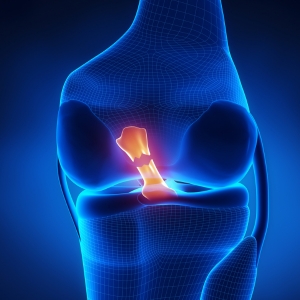Introduction
Breastfeeding is one of the most natural and beneficial things a mother can do for her baby. It provides advantages to both mums and babies in terms of nutrition, immunity, bonding and overall health.

What does breast milk contain?
Breast milk is a special and complete food for babies. It has everything they need to grow healthy and strong, like proteins, fats, vitamins, and minerals. It even contains antibodies and other substances that boost their immune system and protect them from getting sick. Breast milk also has good bacteria that help with baby’s digestion.
In the first few days after birth, mothers produce a special type of breast milk called colostrum. Colostrum is rich in nutrients and provides important protection against infections. It helps clear the baby's digestive system and prevents severe jaundice. Colostrum also helps develop the baby's intestines and protects them from future allergies and food intolerance.
Breast milk contains proteins that fight against infections and are easy for babies to digest. It has essential fatty acids that support the baby's brain, eyes, and blood vessels. It also has carbohydrates that promote the growth of healthy bacteria in the baby's gut and help with calcium absorption.
Additionally, breast milk contains other important components like immunoglobulins, white cells, lactoferrin, and immunomodulating agents that provide further protection for the baby.

Benefits of breastfeeding:
- Increased bonding with stronger emotional connection between mothers and their babies, making them feel safe and secure.
- Regulated hormones aid in uterine contraction, and help the uterus return to its pre-pregnancy size faster.
- Burn extra calories.
- Reduce the risk to mothers of developing some cancers and other illnesses.
- Reduce the risk of oxytocin, which is a hormone that can help the mother relax and sleep better.
- Reduces the risk of sudden infant death syndrome (SIDS), childhood obesity, ear and throat infections, asthma, allergies, and type 2 diabetes.
- Protect the babies from disease-causing bacteria and viruses through antibodies in the breast milk.
- Reduces the chance of babies having stomach upsets or diarrhoea as breast milk is easier to digest than formula milk.
When is the right time to start breastfeeding?
It is recommended to start breastfeeding within the first 1-2 hours after birth, as this will help the baby get used to latching and establish a good feeding pattern, as well as the added benefits of early skin to skin contact. During the first few days, the breasts produce colostrum, which is the first milk a mother will produce for her baby. It contains rich antibodies and antioxidants that provide protection against infection, and begins to stimulate the newborn's digestive and immune systems. Colostrum also helps to expel meconium (the dark green substance sometimes found in infant stools) out of the body more easily. This can help prevent issues such as diaper rash or gastrointestinal issues for newborns.
How long should breastfeeding last?
The World Health Organization (WHO) recommends exclusive breastfeeding for the first 6 months, where babies receive only breast milk and no other liquids or solids. After that, it i's recommended to continue breastfeeding until at least 12 months as part of a complete nourishing diet.
Where can mothers get support for breastfeeding?
Finding breastfeeding can be as simple as asking your friends, family or a healthcare provider for advice. Professional lactation consultants can provide guidance on breast health, techniques for lactation, breastfeeding positioning and more. There are also local breastfeeding support groups through hospitals or community organizations that provide education classes and one-on-one consultations to help you get started.
The Matilda midwifery team has a wide experience in supporting mothers with breastfeeding. If you are thinking of breastfeeding your baby, don't hesitate to seek advice from one of the midwives and get as much help as possible. You can also get their breastfeeding support by signing up on the Community Postnatal Midwifery service website, so the team can visit you at home and provide personal support on breastfeeding. Contact the Maternity Department at 2849 0321 for more details.
Breastfeeding is an incredible experience that has advantages for both mothers and babies. It is important to remember that breastfeeding takes time, patience and commitment to master. If you are having any difficulty with nursing your baby, don't hesitate to reach out for help. When breastfeeding is done correctly, it can be incredibly beneficial and rewarding.
Articles on this website are informative only and not intended to be a substitute for professional medical advice, diagnosis or treatment. They should not be relied upon for specific medical advice.

Information provided by:
Maternity Department, Matilda International Hospital







